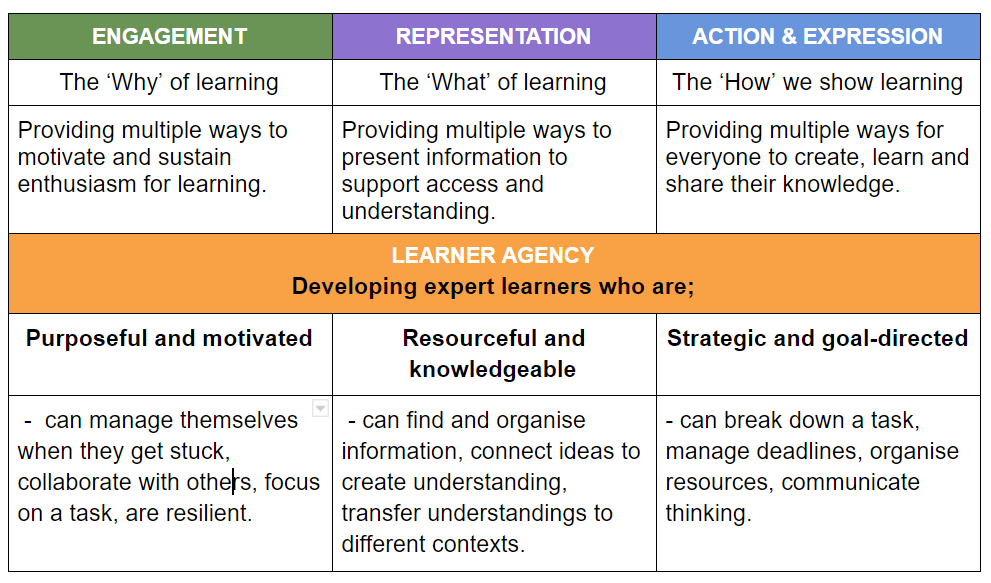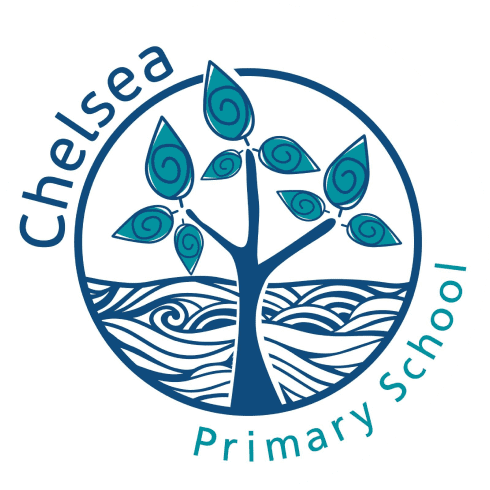At Chelsea School, one of the key approaches of our kaupapa is ‘Inclusion for Learning’. Our New Zealand Curriculum advocates that no one is left out or discriminated against and that everyone will have access to learning in a way that works for them. This acknowledges that every student learns differently and that we must create flexible and barrier-free learning environments for all learners to be successful life-long learners.
Barriers to learning come in a myriad of forms; physical, emotional, developmental, auditory, visual, autism, ADHD, anxiety, dyslexia and ESOL to name but a few.
As a school, we are building our understanding and skills to use a Universal Design for Learning (referred to as UDL) approach, which is based on Neuroscience. This means we need to understand and plan for the variability of all our learners by valuing their strengths and diversity. A UDL approach enables equitable access and participation in education. UDL focuses on three key parts of the learning process as seen in the chart below.

Teachers plan for variability and provide flexible and multiple ways for learners; to be engaged in learning, be presented with the learning to be done, to show and express their learning.
There are many ways this can be seen in a classroom such as:
|
|
To support teachers in providing flexible opportunities to engage, represent and express learning we have a number of Learning Assistants who work alongside individuals and groups of children, primarily within the classroom environment.
We focus on a strengths-based approach to build new skills and knowledge across the curriculum and include our learners in goal setting and next steps.
Support for learners is needs-based and may include:
- IEP/IBP (individual education plan/individual behaviour plan) to support home and school in setting and achieving learning or behaviour goals.
- Learning assistants to support teachers/learners
- Learning support programmes such as;
|
Where necessary we work closely with the RTLB Service (Resource Teachers of Learning and Behaviour) and Ministry of Education Special Education (Psychologists, Physiotherapists, Speech Language Therapists) for specialised support.
Any queries contact:
Learning Support/SENCO(DP)
Janine Cross – janine@chelsea.school.nz
Sven Cropp – sven@chelsea.school.nz

